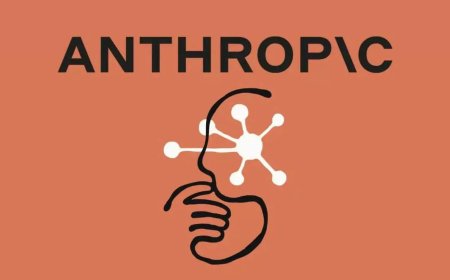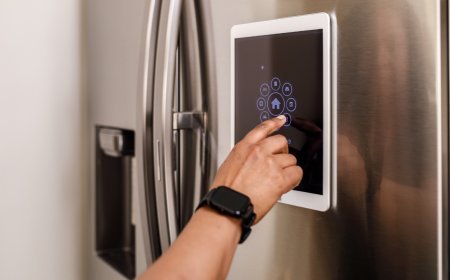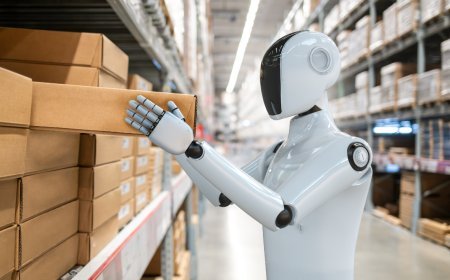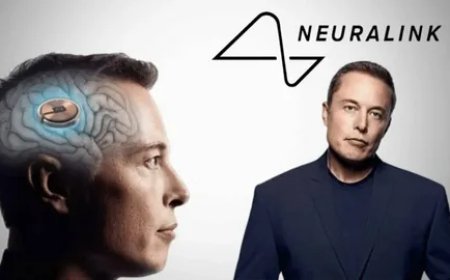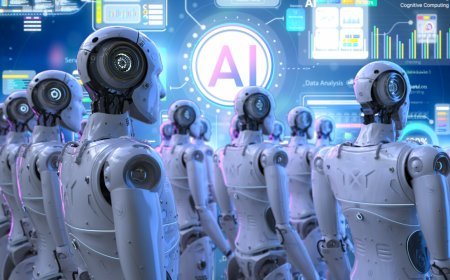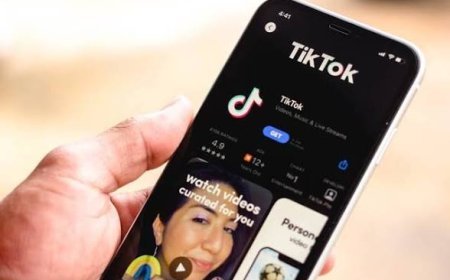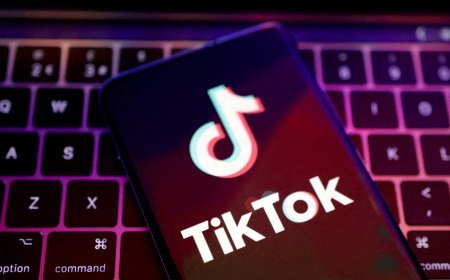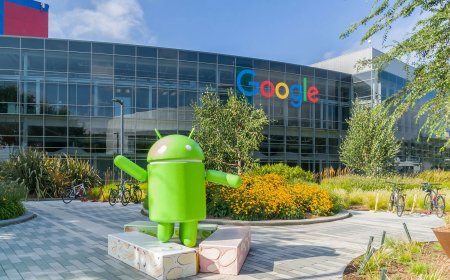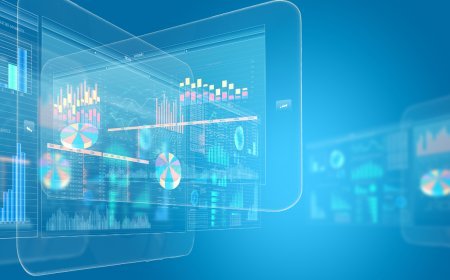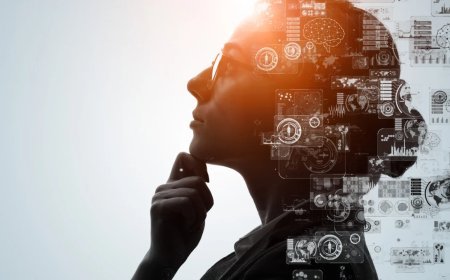5 Ways AI Is Quietly Reshaping Your Daily Life — Without You Noticing
Artificial Intelligence (AI) has moved from science fiction into our everyday reality. It’s not a distant, futuristic concept anymore — it’s here, embedded in nearly every device and service we use. Unlike flashy new gadgets, AI often works quietly, enhancing convenience and making decisions behind the scenes. This article explores five significant ways AI is subtly shaping your daily life, from home management to shopping habits, and what you can expect in the near future.
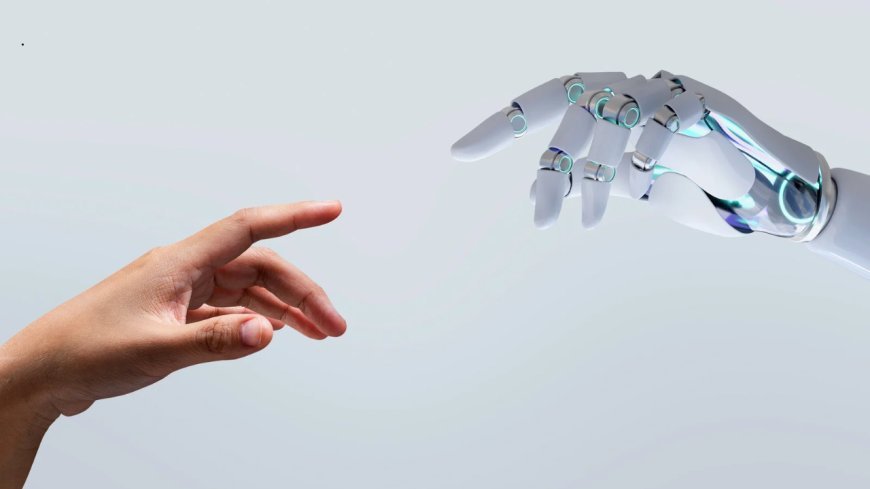
AI in Everyday Life: How It Blends into Modern Living
AI in everyday life is more pervasive than many realize. It doesn’t just power robots or advanced research systems; it’s in your smartphone, your streaming platforms, your car, and even your kitchen appliances.
Common Applications in Daily Life
-
Voice Assistants: Siri, Alexa, and Google Assistant respond to voice commands, control home devices, and provide information instantly.
-
Smart Home Devices: Thermostats, lighting systems, and security cameras adapt to your preferences.
-
Streaming Recommendations: Netflix and Spotify use AI to suggest content you’re likely to enjoy.
Over time, these systems learn your habits. For instance, your thermostat may pre-adjust temperatures when it knows you’re coming home, or your speaker may queue up your favorite playlist on a rainy afternoon. This invisible integration makes life smoother without requiring conscious thought.
How AI Affects Daily Routines: From Morning to Night
How AI affects daily routines becomes clear when you look at a full day:
-
Morning: Smart alarms wake you at optimal moments based on sleep patterns. Your phone offers traffic updates, and your calendar syncs with your schedule.
-
Workday: AI-powered email filters highlight important messages. Virtual meeting tools transcribe discussions, while task managers suggest priorities.
-
Evening: Fitness trackers adjust workout plans based on activity. Streaming services offer personalized entertainment suggestions.
These adjustments save time, improve efficiency, and remove decision fatigue. The more you engage, the more precise these systems become, evolving into personalized assistants.
Real-World AI Examples You Use Without Thinking
There are countless real-world AI examples embedded into your routine:
Transportation and Navigation
-
Google Maps predicts traffic, finds shortcuts, and updates routes in real-time.
-
Ride-sharing apps like Uber use AI for driver-passenger matching, fare calculation, and demand forecasting.
Social Media and Content
-
Instagram and TikTok analyze your behavior to curate content feeds.
-
YouTube recommendations evolve based on your watch history.
Retail and Shopping
-
Amazon suggests products based on browsing habits.
-
Grocery delivery apps predict restocking needs.
Finance and Banking
-
AI detects suspicious transactions and blocks fraud.
-
Chatbots provide customer service 24/7.
These AI tools have become so ingrained that most people use them without realizing how dependent they’ve become.
Artificial Intelligence 2025: The Next Big Shift
Artificial intelligence 2025 promises an even deeper integration into our lives.
Key Predictions
-
Predictive Living: Devices will anticipate needs before you speak — from reordering household essentials to adjusting lighting and temperature.
-
Healthcare Transformation: Wearables will detect potential health issues days in advance, alerting you or your doctor.
-
Education Customization: Learning platforms will adapt to each student’s strengths and weaknesses.
-
Retail Automation: AI will create personalized shopping lists and deliver them without manual input.
By 2025, AI will be more intuitive, context-aware, and seamlessly woven into every aspect of modern life.
AI Impact on Consumers: Shopping, Spending, and Experiences
The AI impact on consumers is substantial, influencing decisions, experiences, and expectations.
Positive Impacts
-
Personalization: Shopping suggestions tailored to preferences and habits.
-
Efficiency: Faster resolutions through AI chatbots.
-
Security: Enhanced fraud detection and prevention.
Challenges
-
Privacy Risks: Data collection and use raise concerns.
-
Subtle Influence: AI shapes choices, sometimes without conscious consent.
From targeted ads to dynamic pricing, AI is not only meeting consumer needs but also directing purchasing behavior.
FAQs
Q1: What are examples of AI in everyday life?
Voice assistants, smart home devices, recommendation engines, and navigation apps.
Q2: How does AI affect daily routines?
It automates, personalizes, and optimizes tasks from morning to night.
Q3: What are notable real-world AI examples?
Google Maps, Amazon recommendations, social media algorithms, and fraud detection.
Q4: What changes can we expect in artificial intelligence by 2025?
Greater prediction, personalization, and context-awareness.
Q5: How does AI impact consumers?
It shapes shopping habits, speeds up service, and protects data, while raising privacy concerns.
Conclusion:
AI has woven itself into the fabric of daily life so subtly that we rarely stop to think about it. From waking up in the morning to making the last decision before bed, AI is there — learning, predicting, and adapting.
Its power lies in its invisibility. The more seamlessly it integrates, the more indispensable it becomes. As we move toward 2025, expect AI to grow even more predictive, personal, and invisible, transforming the way we live without demanding our attention.
The revolution isn’t coming — it’s already here. You’re living in it.
What's Your Reaction?
 Like
0
Like
0
 Dislike
0
Dislike
0
 Love
0
Love
0
 Funny
0
Funny
0
 Angry
0
Angry
0
 Sad
0
Sad
0
 Wow
0
Wow
0




